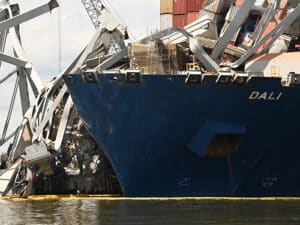
Unions say cuts in manning plus increases in paperwork increase maritime accident risk
Written by Nick Blenkey U.S. maritime unions say that cuts in manning levels and burgeoning paperwork loads are increasing the risk of maritime accidents worldwide. At a time when carriers have reduced crewing levels, ships’ officers are being forced to manage the paperwork load generated by a growing number of government regulations.
U.S. maritime unions say that cuts in manning levels and burgeoning paperwork loads are increasing the risk of maritime accidents worldwide. At a time when carriers have reduced crewing levels, ships’ officers are being forced to manage the paperwork load generated by a growing number of government regulations.
Representatives of officers aboard U.S.-flag ships are calling on Congress to urgently review the situation and respond to the growing risks it entails for people, the environment, and professional mariners—who are increasingly being held criminally liable for accidents.
“The criminalization of simple professional errors—often the result of fatigue or excessive workload—is without justification when there is no oversight regarding the sufficiency of personnel available to carry out shipboard responsibilities,” says Don Marcus, International Secretary-Treasurer of the Masters, Mates & Pilots (MM&P), which represents professional mariners aboard U.S.-flag ships.
“While crews are being reduced, the number of international, federal and state regulations that must be complied with and documented has grown exponentially,” he says.
Marcus made the remarks in testimony April 26 before the House of Representatives Subcommittee on Coast Guard and Maritime Transportation.
He spoke on behalf of members of MM&P, the Marine Engineers’ Beneficial Association and the American Maritime Officers. Together, the three represent almost all the captains and licensed engineering and deck officers aboard U.S.-flag merchant vessels in international trade.
“The choice is often between attending to the traditional duties that affect the safe operation of the ship or documenting compliance with a multitude of regulations,” Marcus told members of Congress. “Regrettably, paperwork and perfunctory reporting requirements are often prioritized at the expense of real safety.”
Maritime officers are calling on Congress to direct the U.S. Coast Guard to conduct an assessment of fatigue and crewing levels based on the recommendations of independent professionals experienced in workplace fatigue. To read the testimony in its entirety, go to www.bridgedeck.org and click on “What’s New.”
April 30, 2012





Leave a Reply
You must be logged in to post a comment.